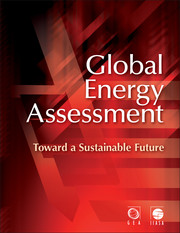Summary for Policy Makers
Published online by Cambridge University Press: 05 September 2012
Summary
Introduction
Energy is essential for human development and energy systems are a crucial entry point for addressing the most pressing global challenges of the 21st century, including sustainable economic and social development, poverty eradication, adequate food production and food security, health for all, climate protection, conservation of ecosystems, peace and security. Yet, more than a decade into the 21st century, current energy systems do not meet these challenges.
A major transformation is therefore required to address these challenges and to avoid potentially catastrophic future consequences for human and planetary systems. The Global Energy Assessment (GEA) demonstrates that energy system change is the key for addressing and resolving these challenges. The GEA identifies strategies that could help resolve the multiple challenges simultaneously and bring multiple benefits. Their successful implementation requires determined, sustained and immediate action.
Transformative change in the energy system may not be internally generated; due to institutional inertia, incumbency and lack of capacity and agility of existing organizations to respond effectively to changing conditions. In such situations clear and consistent external policy signals may be required to initiate and sustain the transformative change needed to meet the sustainability challenges of the 21st century.
The industrial revolution catapulted humanity onto an explosive development path, whereby, reliance on muscle power and traditional biomass was replaced mostly by fossil fuels. In 2005, some 78% of global energy was based on fossil energy sources that provided abundant and ever cheaper energy services to more than half the people in the world.
- Type
- Chapter
- Information
- Global Energy AssessmentToward a Sustainable Future, pp. 3 - 30Publisher: Cambridge University PressPrint publication year: 2012
- 2
- Cited by



